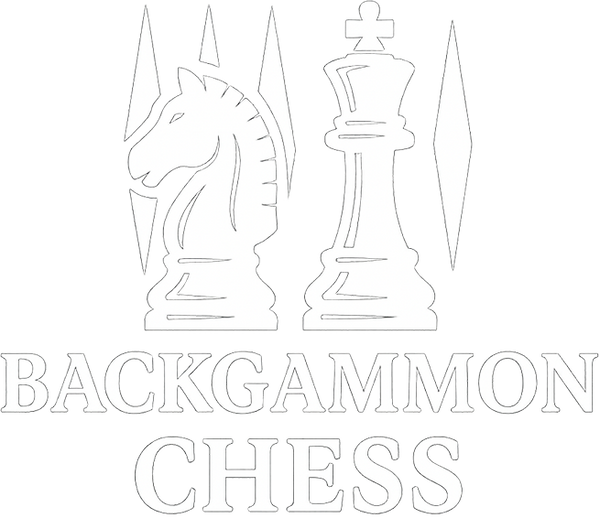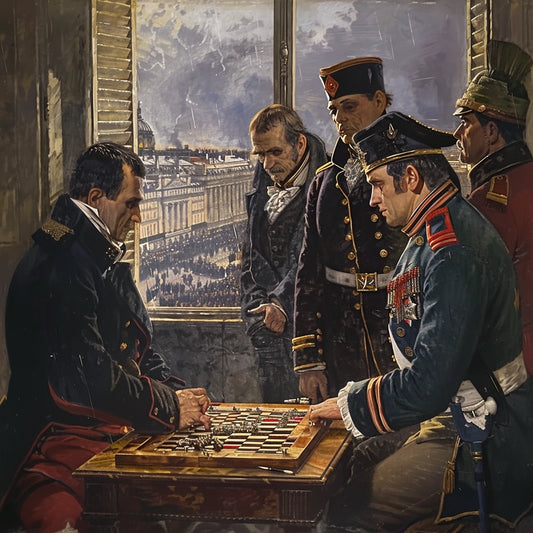
Chess: A Game of Mind and Body - How Chess Can Improve Critical Thinking and Health
In an age dominated by technology and fast information, we often look for ways to keep our minds sharp and find balance in our hectic lives. In this context, chess emerges not only as a venerable game of strategy, but also as a valuable tool for personal development and improving mental and physical health. This article aims to explore in depth the incredible benefits that chess can bring to the mind and body, highlighting how this ancient game continues to be relevant and beneficial in contemporary society.
Chess, often called the "game of kings" , is recognized for its complexity and depth, offering an endless world of strategies, tactics and life lessons. Beyond the pure pleasure of competition and victory, chess is a catalyst for cognitive development, improving thought processes and fortifying emotional health. Players are encouraged to anticipate their opponent's moves, plan several moves ahead, and adapt strategies in real-time, all while managing the pressure and emotions that accompany the game.

Moreover, chess has been the subject of many studies investigating its impact on brain functions. The results suggest that gaming can have significant positive effects, from improving memory and concentration to preventing cognitive decline associated with aging. Plus, the benefits don't stop at the mind. Although chess is a sedentary game, the deep concentration and well-being it engenders can have positive repercussions on physical health, helping to reduce stress and improve the overall quality of life.
Therefore, this article aims to dispel the myth that chess is just a hobby or an intellectual pastime. We will explore how, through its challenges and satisfactions, chess can be a valuable ally in our quest for a sharper mind and a more balanced life. In the following pages, you'll discover how chess improves critical thinking, strengthens memory, builds patience and resilience, and even contributes to emotional and physical well-being. So whether you are an experienced player or a curious beginner, we invite you to discover how chess can enrich your life in unexpected and deeply beneficial ways.
Section 1: The Benefits of Chess for the Mind
- Improving Critical Thinking and Problem Solving : Chess is not just a game, but a veritable arena for the exercise of critical thinking and strategic planning. By its very nature, chess requires players to think ahead, anticipate their opponent's moves, and assess the consequences of their own and their opponent's actions. This continuous practice of anticipation and evaluation helps develop an agile mind capable of tackling complex problems and finding effective solutions, valuable skills both on the chessboard and in everyday life.
- Memory Enhancement : Experienced chess players are often able to quickly recognize different board configurations and remember specific strategies and openings. This practice improves visual and spatial memory, training the brain to store and access complex information. In addition, memorizing movement sequences and game strategies contributes to the development of a more robust long-term memory, benefiting general cognitive functions.
- Improving Concentration : In an era of ubiquitous distractions, the ability to maintain focus on a single task for extended periods is becoming a rarity and therefore an especially valuable skill. Chess, by requiring undivided attention to the game and strategy, trains the mind to filter out background noise and focus intensely on the task at hand. This regular practice of concentration can significantly improve the ability to stay focused, not only during gaming, but also in other activities that require sustained attention.
- Developing Creativity and Cognitive Flexibility : Although chess is a game with strict rules, success in it often depends on the player's ability to think creatively and take unconventional approaches. Constantly searching for new strategies and openings, adapting to surprising opponent moves, and finding innovative solutions to complex problems fosters lateral thinking and cognitive flexibility. These creative and adaptive thinking skills are essential in solving problems beyond chess, facilitating innovative and effective approaches to real-life challenges.
By improving critical thinking, strengthening memory, improving concentration and developing creativity, chess provides a comprehensive mental workout, proving that it is much more than just a game. It is, in fact, a method of personal and intellectual development, with benefits that extend into many aspects of everyday life.

Section 2: The Benefits of Chess for Emotional Health
- Developing Patience and Resilience : By learning to handle defeat and persevere in the face of challenges, chess players develop patience and resilience. This aspect is crucial not only on the chessboard, but also in everyday life, where the ability to face adversity and stay in control of the situation in difficult moments is essential. Chess teaches that every mistake is a lesson and that perseverance can turn a seemingly insurmountable obstacle into a deserved victory.
- Reducing Stress and Anxiety : The concentration required while playing chess can have a meditative effect, reducing stress and anxiety. Every move requires undivided attention, allowing players to disconnect from everyday concerns and enter a state of flow, where time and stress seem to melt away. This regular practice of deep concentration can help improve stress management and reduce overall anxiety levels, providing a welcome break for the mind.
- Improving Self-Esteem : Successes in chess can increase self-confidence and a sense of personal accomplishment. Every game won, every successful strategy and even progress in understanding the game contributes to building a positive self-image. Players learn to appreciate the value of personal effort and take pride in developing their skills. Furthermore, chess provides a framework in which success is directly linked to dedication and hard work, reinforcing the idea that perseverance and personal commitment lead to remarkable results.
- Promoting Positive Social Interactions : Although chess is often perceived as a solitary game, it also promotes healthy social interactions and stimulating intellectual exchanges. Chess clubs, tournaments, and even online games provide opportunities to meet new people, develop friendships, and become part of a community with shared interests. These interactions can reduce feelings of isolation, improve emotional health and contribute to a sense of belonging.
- Cultivating Empathy and Respect : Chess teaches players to recognize and respect their opponent's perspective, promoting empathy and mutual understanding. By trying to anticipate their opponent's moves, players learn to put themselves in the other person's shoes, a valuable skill in all aspects of social and professional life. Respect for the opponent, regardless of the outcome of the game, is a fundamental lesson of integrity and fair play.
By improving emotional health, chess provides not only an escape from everyday stress, but also a valuable toolkit for personal and professional development. At its core, chess is more than a game; it is a reflection of life itself, offering lessons that transcend the game board and accompany us in every aspect of our existence.

Section 3: The Physical Benefits of Chess
Although at first glance chess appears to be a sedentary game, recent research reveals that the intense mental stimulation it provides can have surprising positive effects on physical health. Here are some of the most notable benefits:
- Improving Brain Health : Playing chess challenges the brain in complex ways, training both cerebral hemispheres. This intense brain activity not only stimulates the growth of dendrites—which help improve the speed and quality of neural processes—but may also slow or even prevent cognitive decline associated with aging. Through its constant challenges, chess keeps the brain active and agile, contributing to better long-term cognitive health.
-
Blood Pressure Regulation : The deep concentration and state of relaxation achieved during a game of chess can have a calming effect on the nervous system. This can help regulate blood pressure, reducing the risk of hypertension and other cardiovascular problems. Although the game can be stressful at times, learning how to manage stress in a game can help you apply these techniques to other situations in your everyday life.
-
Stimulating the Immune System : Research suggests that cognitively complex activities, such as playing chess , can stimulate the production of T cells, a type of immune cell responsible for defending the body against pathogens. This indicates that chess not only keeps our minds sharp, but may also play a role in strengthening the immune system.
-
Chronic Pain Relief : Engaging in activities that require intense concentration, such as chess, can help relieve chronic pain. Focusing on your opponent's strategy and moves can provide a form of mental escape, reducing the perception of pain.
-
Improved Sleep Quality : Chess players often experience an improved sleep quality. Solving complex problems and strategizing throughout the day can lead to healthy mental fatigue, facilitating deeper, more restful sleep.
Therefore, chess offers not only an engaging intellectual challenge, but also a number of physical benefits that contribute to a healthier and more balanced life. Regularly incorporating chess into your daily routine can be an effective strategy for improving your overall well-being, proving that this ancient game is truly an exercise for mind and body.
Conclusion:
Chess is more than just a game of strategy; it is an intellectual adventure that provides significant benefits for the mind, emotions and, indirectly, the body. Regardless of age or experience level, getting involved in the world of chess can open the door to a more fulfilling and healthy life.
Begin your journey into the world of chess today and discover how this ancient game can enrich your life in ways you never imagined. Explore our chess sets at JocdeTable.ro and find the perfect partner for your intellectual and emotional adventure.






